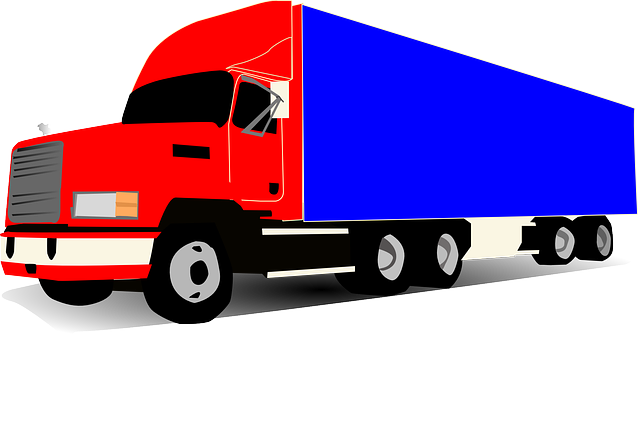Physical damage coverage is crucial for fleet management, protecting trucks from collisions, accidents, and natural disasters. Comprehensive and collision insurance, tailored to specific needs, offers peace of mind and minimizes financial impact for fleet owners, especially small fleets with substantial vehicle investments. By strategically choosing affordable physical damage plans, fleet managers enhance resilience, ensure operational continuity, and prioritize route efficiency and driver safety in bustling transportation networks.
Building resilience in fleet management is essential to navigate unpredictable road conditions and minimize operational disruptions. This article explores the critical role of robust physical damage policies, particularly focusing on truck repair insurance, in fortifying your fleet against unexpected collisions and damage. We delve into comprehensive fleet insurance options, affordable strategies for small fleets, and how these measures collectively contribute to uninterrupted trucking operations and financial stability.
Understanding Physical Damage Coverage for Fleet Trucks

Physical damage coverage is a crucial aspect of fleet management, offering protection for truck repairs and ensuring uninterrupted operations. This type of insurance covers vehicles against various types of physical damage, including collisions, accidents, and natural disasters. For fleet owners, it provides peace of mind, knowing that unexpected events won’t cripple their trucking business. By understanding the scope of this coverage, fleet managers can make informed decisions when selecting policies tailored to their specific needs.
Comprehensive physical damage plans for small fleets are designed to cover the cost of repairs or replacement, including parts and labor. Collision coverage for fleets is especially vital for trucks frequently traversing highways and city streets, where accidents are more common. Affordable physical damage plans can be customized to include specific exclusions or limitations based on the type of cargo transported or driving conditions. This flexibility ensures that fleet vehicle protection aligns with the unique requirements of each trucking operation, ultimately building resilience against unforeseen events.
The Role of Truck Repair Insurance in Building Resilience

In the realm of fleet management, resilience is key to overcoming unexpected challenges, especially when it comes to physical damage to vehicles. Truck repair insurance plays a pivotal role in building this resilience by offering specialized protection for fleet vehicles. This type of insurance provides crucial coverage for collisions and comprehensive damages, ensuring that fleet owners can swiftly address any issues without severe financial strain. With affordable physical damage plans tailored for small fleets, businesses can safeguard their operations and minimize downtime caused by accidents or mechanical failures.
Comprehensive fleet insurance, which includes collision coverage, offers a safety net that enables efficient fleet vehicle protection. This is especially beneficial for trucking fleets navigating through bustling transportation networks where the risk of damage is heightened. By having truck repair insurance in place, fleet managers can navigate repairs and maintenance with greater ease, allowing them to focus on optimizing route efficiency and driver safety rather than dealing with unexpected costs and delays.
Comprehensive Fleet Insurance: Protecting Your Vehicles and Operational Continuity

Comprehensive Fleet Insurance plays a pivotal role in safeguarding your vehicles and ensuring operational continuity for your trucking fleet. It goes beyond basic liability by offering physical damage coverage, which includes protection against collisions, theft, vandalism, and other unforeseen events that could damage your fleet trucks. This is particularly crucial for small fleets, where every vehicle represents a significant investment.
By incorporating comprehensive fleet insurance with collision coverage, you gain peace of mind knowing that unexpected repairs or replacements won’t cripple your operations. Affordable physical damage plans are designed to be tailored to meet the unique needs of trucking fleets, providing cost-effective solutions without compromising on vehicle protection. This proactive approach not only minimizes downtime but also fosters a culture of resilience within your fleet management strategy.
Affordable Physical Damage Plans for Small Fleets: Strategies for Effective Risk Management

Small fleets often face unique challenges when it comes to managing risks associated with physical damage to their vehicles. While comprehensive fleet insurance is a must, finding affordable physical damage plans tailored for smaller operations can be a game-changer in fostering resilience. Many insurers now offer specialized packages designed explicitly for truck repair and maintenance, ensuring that these essential assets are protected against unforeseen collisions or accidents.
One strategic approach for effective risk management involves comparing different trucking fleet insurance options, considering collision coverage for fleets as a core component. By evaluating various physical damage policies, fleet managers can strike a balance between cost-effectiveness and comprehensive vehicle protection. This proactive measure enables small businesses to navigate the road ahead with confidence, knowing their investment in their fleet is secure against potential damages.
By implementing robust physical damage policies, including comprehensive fleet insurance and effective truck repair insurance, businesses can fortify their operations against unexpected vehicle damages. These strategies, coupled with affordable physical damage plans tailored for small fleets, ensure minimal downtime and financial losses. Embracing these measures allows trucking fleet owners to navigate unforeseen events, maintain operational continuity, and safeguard their investments in fleet vehicles, ultimately fostering resilience in their management practices.
